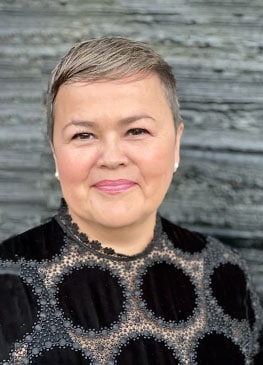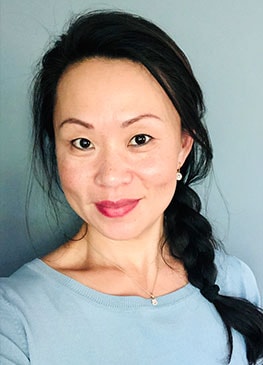Read the full interview here
-

Q. What were important early influences for you that really shaped who you are as a leader today?
A. I’m originally from Brazil. I was educated there, and I worked for my formative professional years there, as well. Starting in the late ’80s as a programmer for ADP Systems, I learned the value of technical leadership to help you grow in a nascent profession.
And in terms of leadership, I learned the importance of trust, because the leaders at ADP in Brazil showed incredible kindness in letting me learn from some mistakes, and not preventing me from finding where those boundaries were as I learned on the job. I remember with fondness the trust, and the side-by-side mentorship, that you see in the eyes of somebody who believes you can grow and has confidence in you.
-

Q. How does that translate to how you manage your team?
A. What I try to do every day — and by no means it’s easy for me, because I’m a troubleshooter — is to ask more questions. You have to try as a leader not to be the smartest person in the room. The team knows best in most situations, and you have to listen, rather than always be directive.
-

Q. What are the headwinds that you’ve encountered over your career because you’re a woman?
A. As a coping mechanism, I have, for the most part, completely ignored them. Part of me wants to empathize with women who are facing headwinds, and part of me simply denies their existence. There were moments when maybe I wasn’t the first choice for assignments, but I became the first choice very quickly because of the adaptability, resilience, and other skills I brought to the table.
I’ve faced other small headwinds that don’t happen as much now. Many times in meetings, people assumed I was the assistant when in fact I was the decision maker. I didn’t internalize it, because I thought it was just a challenge I could blast through. The best remedy is for me to be myself, to be vocal, to call out those moments. I look people in the eye, and it’s not embarrassing. I don’t need to be subtle.
Because I didn’t internalize moments like that, it liberated me to pursue what I really wanted to do and to put more of my effort into technical or leadership challenges.
-

Q. There’s a world of difference between being a manager and a leader. Was there a moment when you made the jump?
A. I remember it quite vividly. I was always the manager who delivered, whether it was a project or a platform or a solution. I started to become a leader when I thought ideas were worth talking about. It wasn’t just about the product. It was about saying, I can see this problem differently. After working more than 15 years in technology, I felt like I was five years ahead of some of the thinking at the time. I was just keeping it to myself but I learned that my role was to influence, and I also had to learn to communicate ideas better.
I started to believe that by influencing my peers, my stakeholders, I would put myself in a position of thought leadership. But that comes with learning how to make people excited about your vision rather than the manager who develops the work systems that should be followed. That for me was the beginning of a different learning phase of my career but also the moment where I clearly started to identify myself as a leader.
-

Q. What is the most common mentoring advice that you give to other women?
A. I’m a tentative mentor, and I say that because I’m always worried about giving advice without knowing the full context and that it might be taken as gospel. I like mentoring as a relationship because it allows both sides, the mentor and the mentee, to learn from each other.
The topics that come up all the time are about not being heard around the table. You cannot be heard if you don’t speak. And if you speak and somebody speaks over you, then you speak over them. Or maybe you have to whisper because then people have to be quieter to listen to you.
I’ve tried all of that. I’ve tried banging on the table, speaking over others, putting the hand up. When women talk to me about their role in the team, it is often about their readiness to be considered for the next role. They may not feel that they are being taken as seriously as they should be, or they’re not being heard.
I think we need to be persistent. There is not just one moment that leads to someone being chosen to be the leader. That just doesn’t happen. It is so incremental and continuous. And you keep working to put yourself in a position of trust for the opportunity when it is presented to you.
If it doesn’t get presented to you, then I share my own experience. I have not banged my head against a glass ceiling because if I see something very exciting somewhere else in the organization or in a different organization that I like, I go for it. And I take full ownership for my moves, however zig-zaggy they might appear.







